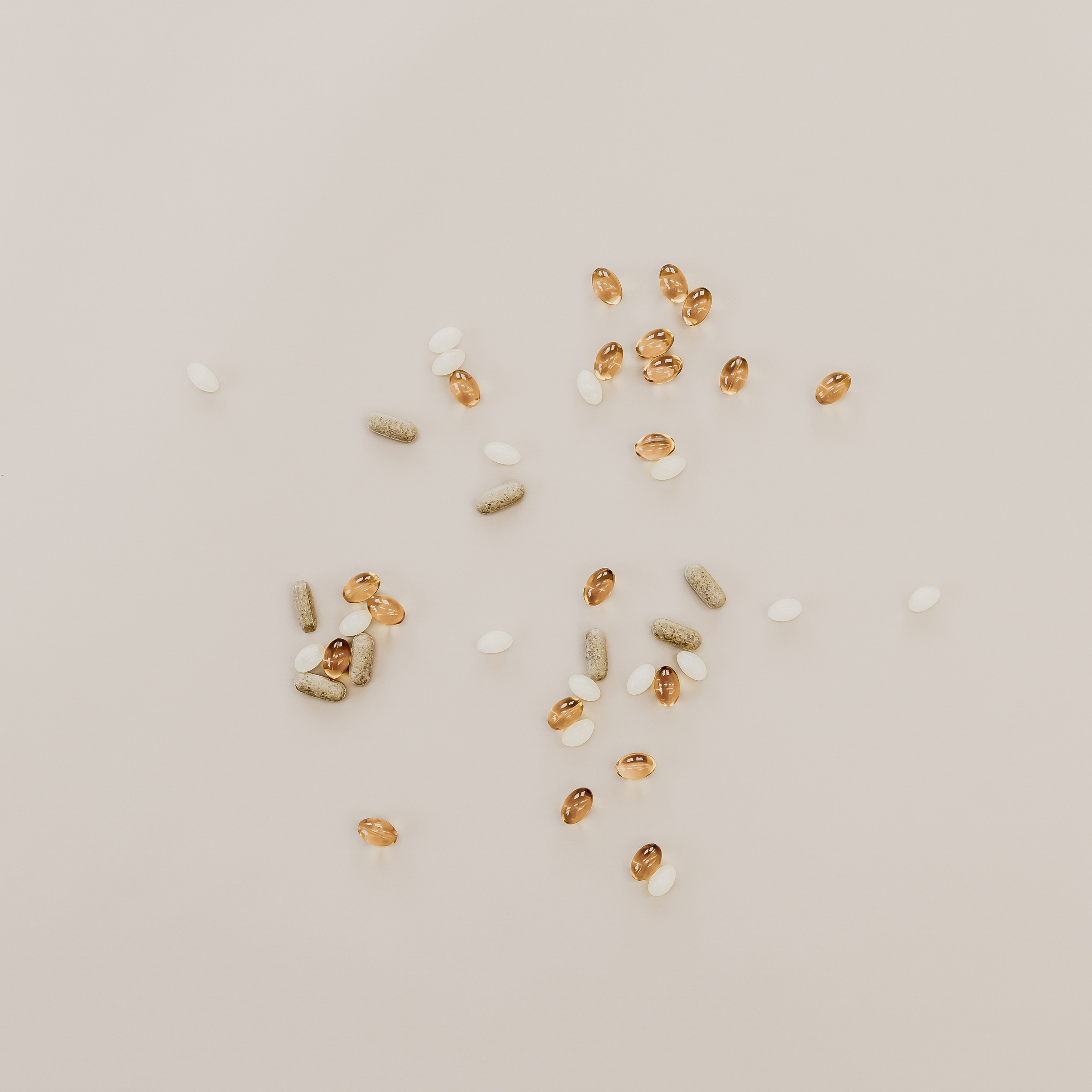Resources
Style
Planning
View All
THE blog
Want to know how to boost your fertility diet?
Then you need to learn about Choline! Choline is just as important in helping to prevent neural tube defects as the well known vitamin folate, but unfortunately, it’s not as well known or spoken about. If you’re looking for some choline rich foods for fertility, then read on!
Choline also plays an important role in:
- Supporting the transfer of nutrients across the placenta to ensure your baby receives the nutrients it needs
- Fetal brain development
- May assist in reducing the chances of your baby developing chronic diseases later in life
What’s the data?
The research that has been done over the past 20 years, outlines very clearly the benefits of choline when it comes to both overall health during pregnancy and the development of our babies brain.
Studies on animal models have shown that Choline plays a key role in enhancing brain function and also serves to protect the brain and its various elements as it develops.

Human studies on the other hand have shown that taking Choline in doses higher than what is currently recommended by various health bodies, has multiple benefits, including:
- Enhancing the function of the placenta
- May reduce the risk of preeclampsia
- Improves brain development in the infant
- Boosts reaction times in the infant
- Enhances an infants visual memory
Why haven’t you heard of Choline before?
Unfortunately, the research around Choline is relatively new in scientific terms (by this I mean the research has only really been looking into this topic for the past 20 years), and it’s not a well known supplement when it comes to fertility (well outside of the dietetic community anyway!).
The evidence while not well known, is really promising and it is well worth aiming to include more sources of choline in your diet if you are trying to conceive or pregnant.
So where do you find Choline?
Choline is found in the highest amounts in animal products.

Top Choline Rich Foods for Fertility:
- Eggs
- Salmon
- Beef
- Chicken
- Dairy products
- Soybeans
Like many other nutrients, our choline needs increase dramatically during pregnancy with some studies suggesting that our choline needs may be almost double what is currently recommended by the guidelines.
Should I supplement Choline?
Unfortunately, many of us don’t currently get our choline needs from food alone, and in these cases a supplement may be of benefit to support a healthy pregnancy. Not all prenatal supplements contain Choline, and some also don’t contain enough to provide you with all the benefits. Some of my favorite prenatals that include adequate choline are FullWell Prenatal and Needed.
If you’re already taking a prenatal that doesn’t have choline, consider supplementing or assessing your diet to see if you meet the choline requirements for adequate fertility and pregnancy. You can find more fertility supportive supplements in my fertility dispensary here. Remember, it’s important to ensure that you work with a professional when selecting the right prenatal supplements for you!
Looking for More Support?

Looking for more 1-on-1 support on your fertility journey? Apply for a free 20 minute strategy call today. I can help you regulate your cycles, ovulate, and have a healthy pregnancy using my proven functional nutrition method. I look forward to speaking with you!
References:
- Blusztajn, Jan Krzysztof, and Tiffany J. Mellott. “Neuroprotective actions of perinatal choline nutrition.” Clinical chemistry and laboratory medicine 3 (2013): 591-599.
- Kwan, Sze Ting Cecilia, et al. “Maternal choline supplementation during pregnancy improves placental vascularization and modulates placental nutrient supply in a sexually dimorphic manner.” Placenta 45 (2016): 130. ; Jiang, Xinyin, et al. “A higher maternal choline intake among third-trimester pregnant women lowers placental and circulating
- Boeke, Caroline E., et al. “Choline intake during pregnancy and child cognition at age 7 years.” American journal of epidemiology 12 (2012): 1338-1347.
- What Is Choline? An Essential Nutrient With Many Benefits (healthline.com)

Like many of my clients and readers, I was given hormonal birth control with absolutely no discussion on the side effects of the pill. I was handed the pill and never really thought twice about it. I just knew it gave me a “regular” period and would help me protect against an unwanted pregnancy. It was only in my THIRTIES that I discovered how the pill depletes certain nutrients, affects mood, weight, and so much more. If you’re curious about which nutrients are depleted on hormonal birth control, then keep reading on.

8 Nutrients depleted on hormonal birth control and how they impact fertility:
Zinc
Found in foods such as eggs, seafood, meat, nuts, seeds, beans and whole grains. Zinc plays an important role in both egg and sperm health.
Magnesium
Found in foods such as avocado, banana, seafood, green leafy vegetables, nuts and seeds. Magnesium plays an important role in sleep, bone health and our muscles ability to relax.
Vitamin C
Found in foods such as oranges, broccoli, kiwi fruit and guava. Vitamin C is a valuable antioxidant that keeps our eggs and sperm protected from oxidative stress caused by free radicals.
Folate
Found in green leafy vegetables and fortified breads and cereals. Folate is essential when trying to conceive and helps to prevent the formation of neural tube defects in early pregnancy.
Selenium
Found in foods such as Brazil nuts, meats and seafood. Selenium plays a valuable role in our thyroid function and helps to prevent sperm from mutating or becoming damaged.
Vitamin B2
Found in eggs, meats and dairy products. Vitamin B2 is a common nutrient depleted when on the pill and is often the culprit behind those pesky headaches!
Vitamin B6
Found in foods like breads and cereals. Vitamin B6 is commonly depleted in those taking the pill. It plays an important role in fertility and the luteal phase of the menstrual cycle.
Vitamin B12
Found in foods such as fish, beef, and fortified cereals. B12 is essential for healthy cell formation, a must when trying to conceive.
Ideally you would want to ensure that these levels are checked and corrected where necessary before you start thinking about conceiving to ensure a healthy baby and pregnancy. You can start a prenatal, a few months before coming off the pill to help with the transition of coming off.
Wondering what else you can do to support your body when coming off the pill?
Let’s face it, coming off the pill can be a scary thought and can lead to some not so nice side-effects including:
- Post-pill amenorrhea
- Painful, heavy periods
- Irregular cycles that are hard to predict
- Acne
- Headaches or migraines
- Changes in weight (loss or gain)
- Changes to mood
- Digestive upset (IBS like symptoms)
- Breast tenderness
Supporting your body through nutrition can be a great way to make the transition easier.
Try these 9 tips to support your body when coming off the pill

- Aim to have at least 1 bowel movement each day to facilitate the removal of excess estrogen in the body.
- Eat plenty of cruciferous vegetables to lower estrogen levels – try eating 1 cup of bok or pak choy, broccoli, cabbage, cauliflower, arugula and Brussel sprouts each day!
- Eat regularly – aim to eat every 2-3 hours to support blood sugar and hormone balance. Putting your body under too much stress can increase the stress hormone cortisol.
- Eat enough fibre to encourage regular bowel movements – aim to eat between 3-6 cups of colourful, leafy vegetables each day.
- Eat lean protein to support your detox pathways – try turkey, chicken, pork, beef, and seafood.
- Include plenty of healthy fats to support hormone creation – try extra-virgin olive oil, avocado, nuts and seeds.
- Stay hydrated by drinking plenty of water – aim for at least 8 cups per day.
- Try to avoid highly processed foods – think sugary foods, fast foods and refined oils.
- Avoid alcohol if you can! Alcohol is also removed via our liver, so give it a break if you can.
References:
- How Birth Control Pills Affect Your Nutritional Needs – Scientific American
- Oral contraceptives and changes in nutritional requirements – PubMed (nih.gov)
Looking for more support with your fertility? Book your free 30 minute 1:1 strategy call with me to learn how I can support you using functional nutrition, specialty lab testing, and targeted supplements. Can’t wait to speak to you!

What is PCOS?
PCOS or Polycystic ovary syndrome is a medical condition that impacts a woman’s hormone levels. Keep reading to learn everything you’ve wanted to know about PCOS.
Those with PCOS typically produce more of the male sex hormones which can lead to:
- Hormonal imbalances
- Skipped or irregular menstrual periods
- Difficulties falling pregnant
- Cysts on your ovaries
Polycystic ovarian syndrome can also cause a range of symptoms including:
- Excess hair growth (particularly on the face and body)
- Changes in body shape
- Acne
- Balding or excess hair loss
Different types of PCOS
There are four main types of PCOS that we commonly see.
1. Insulin resistant PCOS
This is the most common type of PCOS. We can determine that you have insulin resistant PCOS by looking at your circulating insulin levels.
2️. Pill-induced PCOS
Unfortunately, birth control can mask PCOS and may cause symptoms once we stop taking it. When we cease birth control, there is a flood of androgens which while temporary which can cause a range of symptoms associated with PCOS.
3️. Inflammatory PCOS
Chronic inflammation in our body can see our ovaries produce too much testosterone, which we know is a common issue in PCOS!
4. Adrenal PCOS
If our bodies respond to stress in an abnormal way, we can see adrenal PCOS as a result. It is not as common, only making up around 10% of all PCOS cases. This diagnosis will see high levels of DHEAS (an androgen produced in the adrenal glands) and normal levels of other androgens.
How PCOS is diagnosed
A PCOS diagnosis is typically made by your medical team if you have at least two out of these three symptoms:
- Elevated androgen levels
- An irregular menstrual cycle
- Cysts on your ovaries
Your doctor may also:
- Conduct a pelvic exam to check the health of your reproductive organs
- Do an ultrasound to look for abnormal follicles or cysts on your ovaries
- Take your blood to test your hormones and a variety of other health indicators
Helpful PCOS labs to request
In your quest to learn everything you’ve wanted to know about your PCOS, it’s important to consider labs! There are several helpful labs that you can ask your doctor to request if you suspect you have PCOS or if you want to gain a clearer picture of how well you are currently managing your PCOS.
There are several hormones which may be contributing to your PCOS and are responsible for your symptoms including:
- Testosterone
- Estrogen
- Progesterone
- LH
- FSH
- Prolactin
- DHEA
It’s also helpful to understand your blood sugar levels and whether insulin resistance is an issue for you. You can ask your doctor to check your:
- Fasting glucose
- HbA1c
- Fasting insulin
Inflammation can be common in those with PCOS and thankfully with dietary and lifestyle changes, we can reduce this if we know it is an issue. As your doctor to check your:
- CRP
- Homocysteine
Metformin (a commonly prescribed PCOS medication) can cause B12 deficiencies, so ensure that you doctor screens for this in your bloods also!
How does PCOS impact your cycle?
There are two main ways in which PCOS impacts upon your menstrual cycle.
- Women with PCOS typically don’t ovulate or ovulate infrequently. This prevents the uterine lining from shedding each month like we would typically expect. As a result, this can cause irregular menstrual cycles.
- As a result of the above, the uterine lining doesn’t shed as often, becomes thicker and can cause heavier bleeding than normal when you do get a menstrual bleed.
What does PCOS mean in terms of fertility?

Given that PCOS disrupts your ability to have a normal menstrual cycle, it can also potentially impact upon your ability to get pregnant. It is estimated that between 70-80% of women diagnosed with PCOS struggle with infertility at some point.
The changes in hormone levels can also increase your risk of complications arising during your pregnancy including:
- Premature birth
- Miscarriage
- Gestational diabetes
- Pre-eclampsia
Thankfully dietary and lifestyle changes considerably improve your chances of conception and having a healthy pregnancy and healthy baby!
Things that can make your PCOS worse
- Working long hours and not taking regular breaks
- Inadequate water intake
- Inadequate daily movement or exercise
- Not eating enough fibre
- Poor sleep duration and quality
- Drinking too many caffeinated beverages
- Not eating enough healthy fats in your diet
- Not eating regularly – skipping meals and snacks can wreak havoc on your blood sugar and insulin levels
- Exposure to endocrine disrupting chemicals
- Not eating balanced meals
- Consuming too many processed foods
How best to support your PCOS
The good news is that there are many aspects of your lifestyle that can be altered that can significantly improve the free androgen index (FAI), in addition to your weight and BMI.
Aim to balance your blood sugar levels and manage your insulin resistance
- Consuming low-glycaemic index foods (see guide here for more info)
- Eat regularly (every 3-4 hours)
- Consume balanced meals (incorporate protein, healthy fats and fibre-filled carbohydrates into each meal and snack)

Consider supplements
- Talk to your healthcare profession about how dietary supplements may be able to assist in the management of your PCOS (see more on supplements for PCOS below)
Manage your stress
- Adopt strategies to better manage your stress
- Try moving your body, meditating, and journaling

Drink enough water
- Aim for at least 8 glasses of water each day
Get plenty of sleep
- Aim for 7-8 hours sleep each night
Avoid endocrine disrupting chemicals
- Avoid BPA, phthalates, dioxins, copper and chromium are just some of the many endocrine disrupting chemicals we are exposed to each day.
Endocrine disrupting chemicals are found in:
- food
- personal care products
- cosmetics
- pharmaceuticals
- pesticides
- plastics
- water
- soil
Learn more about endocrine disruptors here.
Some commonly used supplements include:
Magnesium
The research on magnesium supplementation is not concrete at present. Some studies suggest that magnesium may play a role in improving insulin resistance due to its links to glucose metabolism.
Inositol
Inositol is often combined with metformin and can help to enhance:
- Insulin function and manage insulin resistance
- Move glucose into our cells faster helping to keep our blood sugar levels more stable
Berberine
Berberine is known for having several functions including:
- Helping to reduce inflammation
- Increase insulin sensitivity
- Encouraging ovulation each cycle (in turn improving fertility)
N-Acetyl Cysteine (NAC)
NAC is an antioxidant compound which reduces the number of free radicals that can damage cells in our body.
NAC is associated with:
- Improved chances of conceiving
- More regular ovulation
Enjoyed learning everything you’ve wanted to know about PCOS and keen to learn more?
References:
- Treatment of infertility in women with polycystic ovary syndrome: approach to clinical practice (nih.gov)
- Pregnancy complications in women with polycystic ovary syndrome | Human Reproduction Update | Oxford Academic (oup.com)
- Polycystic Ovary Syndrome (PCOS): Symptoms, Causes, and Treatment (healthline.com)
You may be thinking – I don’t need to work with a fertility dietitian / nutritionist, I already eat pretty healthy (weekend margs don’t count right?), I exercise, drink my green juices … and besides, I can get any nutrition information I really need through Google.
Well, my friend… I’m here to break down five benefits of working with a fertility dietitian nutritionist, specifically one that works in a functional nutrition capacity. I think some of these may surprise you!

1. Breaking down your relationship with food
Okay, we all have our issues with food. To say that eating is not emotional… well it’s just not what I’ve seen in my practice and in life. We all eat emotionally from time to time, even if it’s happy emotions like birthday cake, or holiday meals.
But when our relationship to food becomes restrictive or consumes our thoughts, it’s time to work with a professional who understands what you’re going through.
For many women struggling with fertility, food can be very time consuming. We’re told not to eat gluten or dairy or cut out coffee completely. We’ve heard of different fertility diets, and can easily spiral into the trap of thinking that every bite we take is going to either get us pregnant or leave us feeling miserable.
Working with a fertility dietitian that can help you set up your meals in a way that supports your fertility, but also leaves room for enjoyment is key. I mean, what is a life without pizza anyway?
2. Accountability

Raise your hand if you’ve ever tried to take on a new hobby or something to improve yourself only to find yourself giving up a few weeks later? 👋🏼
A few years ago, I decided I wanted to take up surfing – I bought a foam board off Craigslist, rented a wet suit, and out I went into the ocean. As I splashed around the water, and even got tumbled by some waves I felt exhilarated by the cold Pacific ocean and glimmer of water in the sun.
Maybe I went out a few more times, but soon enough, I lost momentum. I didn’t have anyone to go with, no one to learn some new moves with or a partner to go with before or after work.
We all have the best of intentions when we start something new. But having accountability is key. And your dietitian is always going to keep you accountable to what you said you wanted for yourself.
3. Test, don’t guess
When you work with a functional nutrition dietitian (hey, hello!) – you’re likely going to be introduced to some new functional lab tests. Tests like the DUTCH hormone test, GI MAP stool test, Spectracell micronutrient testing, food sensitivity testing and more.

The reason for this is because you’ve likely already had some conventional lab tests done in the past. The problem with this is that you’re still trying to get pregnant and have no answers. By the way… “unexplained infertility” is not an answer.
This is where a deeper dive into your gut, hormones, and nutrient levels is so important. For example, most people don’t realize that they’re probably deficient in vitamin D – a key vitamin (that acts as a hormone) needed for fertility.
Or maybe you’ve had heavy periods your whole life, but didn’t realize that your messed up gut health is actually impacting your estrogen levels, causing you to put on weight, and have heavy painful periods.
Working with a functional nutrition dietitian is going to be key to understanding the root cause of your issues.
4. You have PCOS and you’re kind of freaking out
One of the most common hormone disrupting conditions for women of reproductive age is PCOS. It can feel really scary when you get the diagnosis and you may think you’ll never be able to get pregnant without hormone therapy – WRONG. Just wrong.
Instead of jumping to medications and pills, you can work with a fertility dietitian who will help you manage your diet and lifestyle specifically for PCOS, so that you can have regular periods, and optimize your chances of getting pregnant naturally.
PCOS is not a death sentence, and there are plenty of women with the condition who get pregnant (and have healthy pregnancies) without assistive reproductive technology.

5. You know your diet could be better and you just want to make sure you have a healthy pregnancy
Well, good on you girl for being uber prepared for pregnancy.
Did you know that the best time to start taking prenatal vitamins and working on your diet is actually 6 months BEFORE you plan to start trying?
Working with a fertility dietitian is going to be huge for you, because you’re making sure you get all the nutrients you and baby need, so by the time that first trimester rolls in and all you want is bagels and crackers- you’ve already stored up the necessary nutrients to ensure baby is getting everything they need.

So tell me, which one applies to you? If you’re thinking you might benefit from working with a fertility dietitian, book your free discovery call with me today.
We’ll talk through what your goals are and how I might be able to help you on your journey towards becoming a mama.

The Preconception Playbook
This free playbook provides specific actionable tips to get started on your fertility journey, as well as what to avoid while you're trying to conceive.
Get the free playbook

